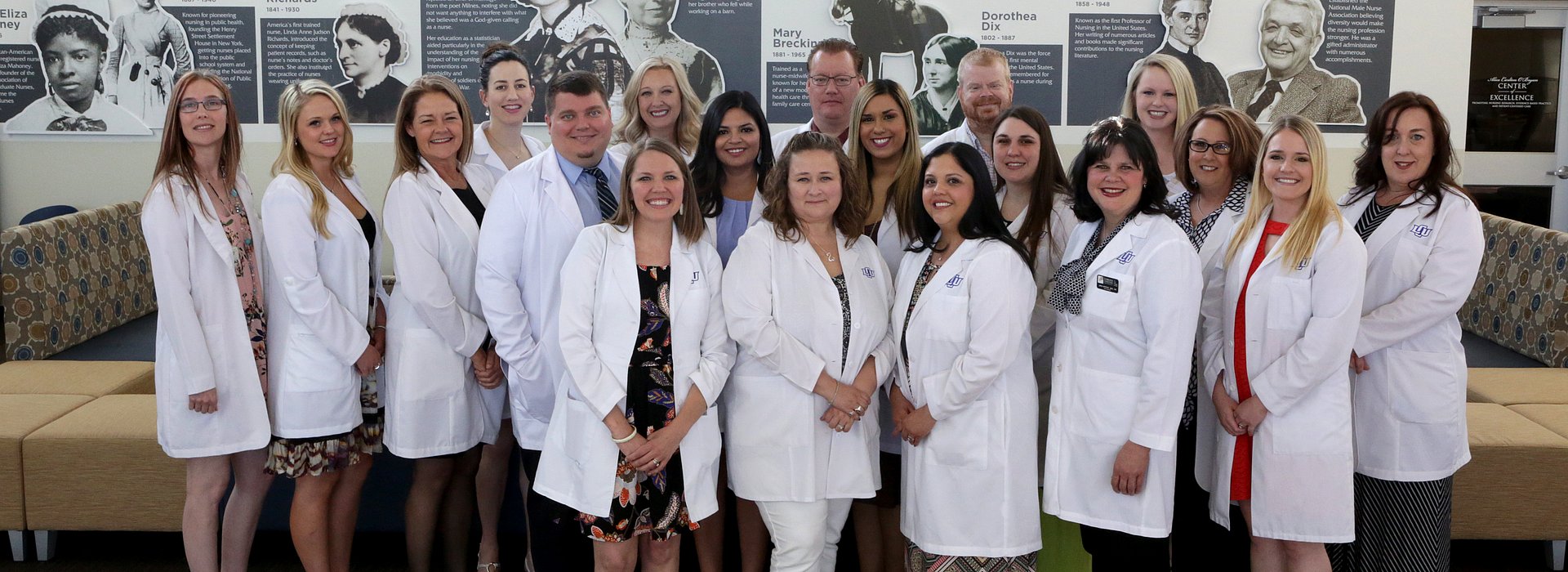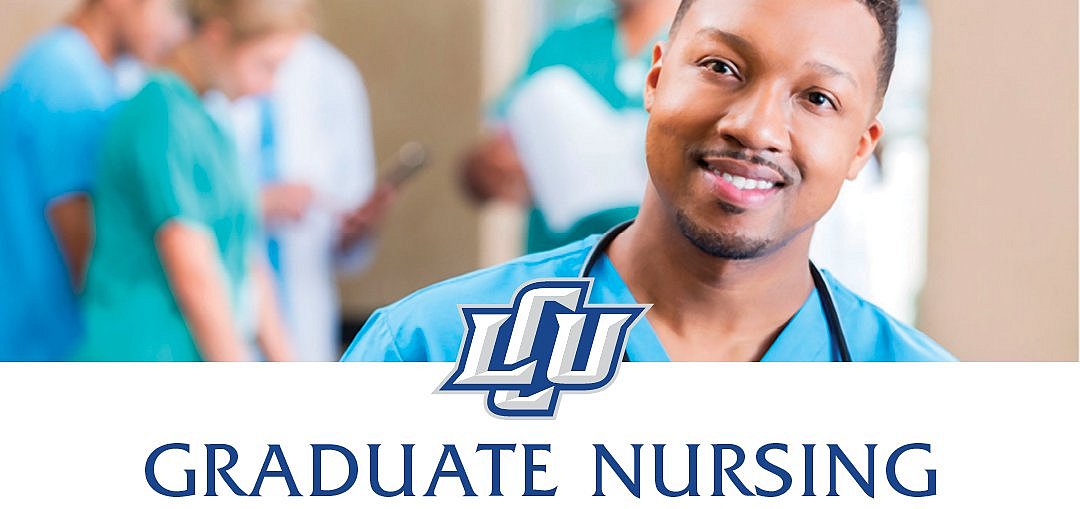
Credit Hours
Length (Years)
Format
Start Date
Request Info
The Lubbock Christian University School of Nursing values its tradition of providing high quality education based on the needs of students and the community. The Family Nurse Practitioner (FNP) Program has been designed to prepare graduates to assume a primary care role in the clinic setting. While this program is considered a hybrid of online and traditional lectures, a substantial amount of time will be physically spent attending lectures, labs, and clinical rotations. Upon completion, the student will earn a post-master’s certificate and be eligible to sit for the ANCC or AANP national board certification exams.
This track includes completion of:
- 38 credit hours
- A minimum of 750 hours of clinical training
- A full-time, rigid, and sequenced curriculum completed in 5 semesters. Students move through the program together as a cohort to develop academic and professional support systems that enhance their experience at LCU.

FNP Student Achievement Outcome Data for 2023
- Graduates' success on the licensure and/or certification examination: 88%
- Students' completion of the nursing program: 100%
Post MSN-FNP
- Students may transfer up to 6 credit hours obtained from a graduate level pathophysiology or pharmacology course completed less than 2 years prior to admission at the discretion of the FNP Program Coordinator.
- Transfer course credit will only be granted for grades of B or higher.
- Students in the Post-MSN Family Nurse Practitioner Certificate Track are not eligible for federal financial assistance.
The post-master’s certificate program will accept applications for admission beginning September 1st and ending August 1st of each year with a new cohort of students starting each August. All application materials must be received prior to the admission ending date.
- MSN degree from a regionally accredited university
- Completed LCU student application
- Minimum GPA of 3.0 (cumulative graduate degree)
- 2 years full-time RN clinical work experience
- Current BLS certification
- LCU Credit Agreement
- Faculty Interview (All applicants may not necessarily be granted an interview)
- Submission of personal essay specifying your interest in becoming a family nurse practitioner, your long-term career goals, and why you chose this graduate program. Essay should be double spaced and not exceed 2 pages in length.
- 3 letters of recommendation that speak to your clinical competency, personal character, and potential as a student (1 letter must be from FNP or physician).
- Professional Resume / CV
- Verification of current Texas licensure as RN
- Completion of criminal background check
- $60 (non-refundable) application fee
Fall 1
NUR 5312
Advanced Physiology / Pathophysiology
3 hours
NUR 5313
Pharmacotherapeutics
3 hours
NUR 5101
Advanced Practice Nursing and Forensics: Caring for High Risk Populations
1 hour
Spring 1
NUR 5434
Advanced Health Assessment (120 clinical hours)
3 hours
NUR 5202
FNP Role, Leadership, and Theory
2 hours
NUR 5314
Advanced Diagnostics and Procedures (60 Clinical Hours)
3 hours
Summer 1
NUR 5338
Advanced Nursing Care: Pediatric
3 hours
NUR 5440
Primary Care Practicum I (190 clinical hours)
4 hours
Fall 2
NUR 5341
Advanced Nursing Care: Adult / Geriatric
3 hours
NUR 5443
Primary Care Practicum II (190 clinical hours)
4 hours
Spring 2
NUR 5244
Advanced Nursing Care: Women / Prenatal Primary Care
3 hours
NUR 5445
Primary Care Practicum III (190 clinical hours)
4 hours
NUR 6300
Evidence-based Project
3 hours
This course is designed to provide the advanced practice nurse with a concise review of clinically applicable human anatomy. Information presented will focus on correct identification of anatomical structures that are critical to advanced nursing practice and will be complimentary to various advanced nursing clinical courses.
This course examines the professional history and evolution of the family nurse practitioner. Discussion of legal parameters that govern advanced practice and the role of the nurse practitioner in providing cost-effective care. The fostering of a leadership role in collaborating with multiple stakeholders to improve health safety, accountability, and quality outcomes is emphasized, as well as, evaluation of nursing theories that are the foundation of the APN role.
This course focuses on the health needs of women with additional focus on prenatal care. Emphasis will be placed on refining health assessment skills, patient education, identification of health abnormalities, interpreting diagnostic findings, formulating a plan of care, improving communication skills, and guiding preventative and health promotion activities in culturally diverse populations. Holistic and spiritual concepts of care unique to this population will be examined as well.
This course offers an overview of advanced concepts related to normal and abnormal body function. The primary focus is on in-depth and current understanding of disease processes across the lifespan integrating risk factors for disease in various populations.
This course focuses on the clinical application of pharmacology needed in the provision of advanced practice nursing. The emphasis is on drugs commonly used in the family practice and ambulatory primary care setting for the treatment of acute and chronic disease, and on the integration of drug therapy as one component of therapeutic management plans. The application of the principals of pharmacodynamics and pharmacokinetics to clinical use of drugs will be explored, including therapeutic dosage patterns, side effects, drug interactions, and contraindications.
This course will examine the appropriate use and interpretation of advanced diagnostic tests available to the nurse practitioner in primary care with an emphasis on cost-effectiveness. Various invasive skills common to the primary care setting will be introduced allowing students the ability to develop a basic proficiency.
This course focuses on the appropriate diagnosis, management, and prevention of common acute and chronic illnesses specific to the pediatric population. Human growth and development, holistic, and spiritual concepts will be incorporated.
Application of concepts presented in Advanced Nursing Care with focus on refining health assessment skills, identifying abnormalities in health, interpreting diagnostic findings, improving communication skills, formulating a diagnosis and evidenced-based plan of care, and implementing preventative and health promotion education in culturally diverse populations.
This course focuses on the appropriate diagnosis, management, and prevention of common acute and chronic illnesses specific to the adult and geriatric population. Human growth and development, holistic, and spiritual concepts will be examined.
Application of concepts presented in Advanced Nursing Care with focus on refining health assessment skills, identifying abnormalities in health, interpreting diagnostic findings, improving communication skills, formulating a diagnosis and evidenced-based plan of care, and implementing preventative and health promotion education in culturally diverse populations.
Application of concepts presented in Advanced Nursing Care with focus on refining health assessment skills, identifying abnormalities in health, interpreting diagnostic findings, improving communication skills, formulating a diagnosis and evidenced-based plan of care, and implementing preventative and health promotion education in culturally diverse populations.
Culmination of program course work occurs in this course in which students participate in a community based field experience reflecting the role of the family nurse practitioner. Pending faculty approval, each student will develop and present an evidence-based project based on the needs of an identified population. This course is the capstone practicum experience for the family nurse practitioner track.
Visit the University Catalog here to view the Nursing degree plan.
Learn more about this program.
